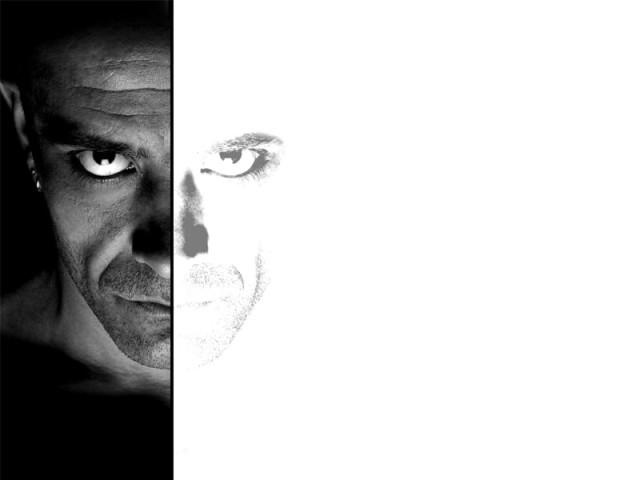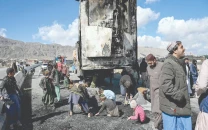Reliving the rape: A damaged psyche
In the absence of professionals, survivors often go through secondary victimisation.

In the absence of professionals, survivors often go through secondary victimisation.
The statistics are startling.
The Aurat Foundation estimates that, of all the reported cases of violence against women, rape was the third most common crime in 2011. The number of rape cases reported is much smaller than the actual number of cases – furthermore, only one third of rapes reported are registered by the police (BBC).
The stories, as reported by the media, are heart wrenching.
A six-year-old girl abducted and raped in Umerkot. Five teenage girls raped in Sheikhupura by their landlords in reprisal for asking for their wages. A young lady, appearing for an interview for an office job in Islamabad, raped by her prospective employers. Three young men rape, beat, suffocate and dispose of the body of a schoolgirl in Mardan.
The effects are long-lasting.
Distress. Guilt. Shame. Loss of confidence. Fear. Flashbacks. Nightmares. Thoughts of suicide.
For those that are brave enough to report rape, they unfortunately often go through what is known as secondary victimisation, whereby the type of questioning they go through and the implied and explicit judgment they are subjected to, makes them experience the rape all over again.

“The professionals that the victim has to talk to, the police, the hospital staff and later on the lawyers and judges, are not trained on how to deal with rape victims. Their questions can be tainted by their own prejudices regarding women and socially constructed notions of honour and this can leave the woman feeling she is to blame for what has happened to her,” explains Anoushey Nazir Khan, a professionally trained therapist. “Amongst the initial reactions to rape is numbness, a reluctance to talk about the incident. Those around her misread this dissociation as evidence of not having been very badly affected by the event and, therefore, not needing as much sympathy and support as she actually does.”
Dr Naima Hasan, Senior Stress Counsellor at the UN and a specialist in family violence, also emphasises on the psychological effects of rape.
“The physical wounds heal, but the psychological scars stay much longer,” says Hasan. “There is such a severe stigma attached to rape that it takes a long time not only for the victim, but also the family, to come to terms with what has happened.”
The immediate support and care a rape victim receives has a strong bearing on the person’s recovery. The most urgent needs, such as safety, medical treatment, and emergency psycho-social support, can be provided through trained psycho-social workers.
“Therapists have to first gain the trust of the rape victim, as it is her trust that has been so badly broken, especially if the rapist, as is common in the majority of cases, is known to her,” says Khan.
The feminist school of therapy, in fact, focuses strongly on this last element, demystifying the concept of rape and honour and helping the victim to understand that she is not at fault, it is the perpetrator; it is not her integrity that has been damaged, but that of the rapist.
Other than self-blame, the rape victim is likely to experience heightened sensitivity and become easily startled by movement or noise. Also common are adverse reactions to stimuli that are associated with the incident, for example a certain place or even food she ate on that day. Victims often unwittingly ‘relive’ the event in flashbacks and nightmares. Cognitive behavioural therapy aims to correct such “faulty thoughts” through “thought stopping”, which is a process of techniques to help the victim work through her feelings until she regains a sense of self control and can return to normal life.
Despite the importance of psychosocial and counselling services, “there is a dearth of trained professionals in this field, even though the education system is producing lots of psychology graduates”, laments Hasan.
“In the absence of trained professionals, para-counselling skills for health workers, lawyers, police and community leaders should be provided,” suggests Khan. “All these services should be available under one roof.”
Published in The Express Tribune, July 8th, 2013.



















COMMENTS
Comments are moderated and generally will be posted if they are on-topic and not abusive.
For more information, please see our Comments FAQ